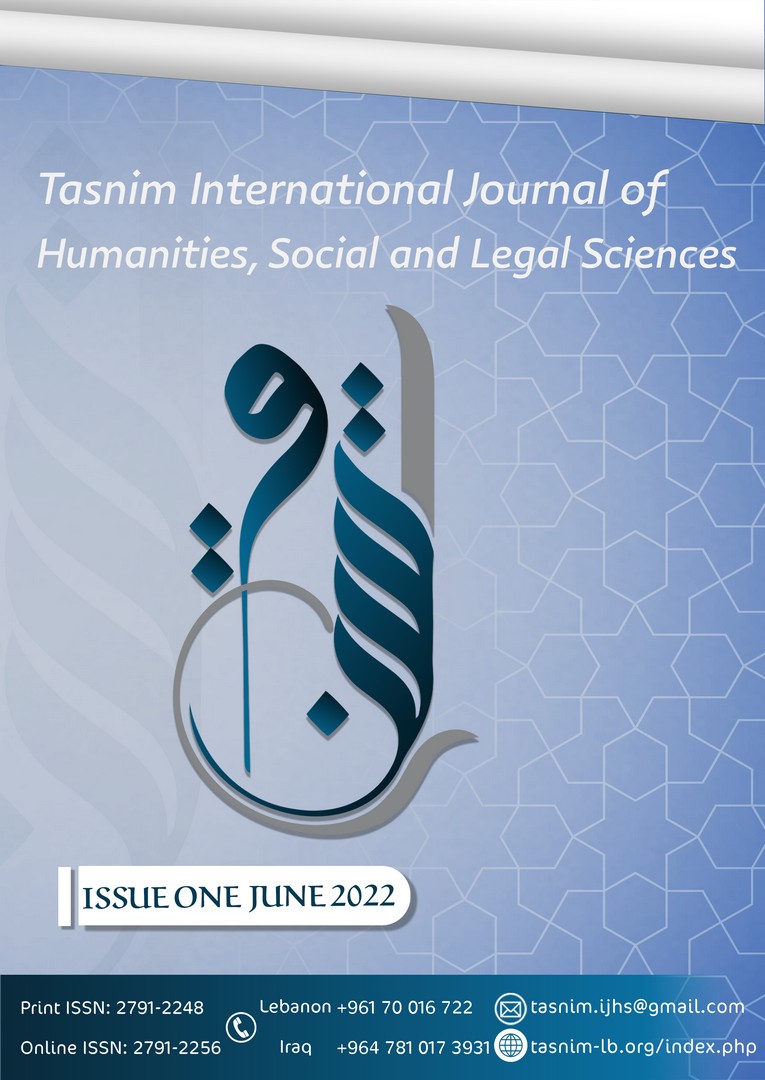المنظومة القيمية الاسلامية وأثرها في البناء الحضاري
DOI:
https://doi.org/10.56924/tasnim.2.2022/3Abstract
The research tried to highlight that civilization is the product of human activity in various fields such as sciences, literature and the arts, and the resulting tendencies capable of formulating different lifestyles, behavioral patterns, and different approaches to thinking. The research emphasized that the values of behavior and education in Islam are subject to the duality of intimidation and encouragement, and these values achieve individual happiness and protect society. The research confirms that civilization is an integrated system that includes all human thoughts, opinions, actions and morals in his individual, family, social, economic or political life. As the research clarifies the importance of Islam encouraging science, pushing the nation’s members to progress and scientific prosperity, and benefiting from the theories that prevailed before it, and we note that the ideas and theories that were prevalent before Islam have been fused with the light of the approach of modern Islamic thought. The research showed that the civilizational decline in its various fields intellectually, morally, economically and politically stems from neglecting the value system in the civilizational construction. The research emphasized the statement of the impact of Islamic values on the advancement of human beings and their advancement, and that Muslims had the greatest credit over the whole world in bringing them out of darkness into light. The research concluded by emphasizing the distinction of the Islamic value system over other philosophies, due to its unique privacy and complete independence, as its source is faith and pure monotheism.
Downloads

Downloads
Published
How to Cite
Issue
Section
License
Copyright (c) 2022 Tasnim International Journal for Human, Social and Legal Sciences

This work is licensed under a Creative Commons Attribution-NoDerivatives 4.0 International License.





